Jobs and Skills Summit 2022: All the names revealed
The landmark jobs and skills summit kicks off on Thursday and there are some big names on the guest list. Here’s everything you need to know.
The Albanese government’s landmark Jobs and Skills Summit will kick off on Thursday.
Anthony Albanese and Treasurer Jim Chalmers will lead the two-day event will bring together business, unions, industry and leaders to discuss the workforce crisis plaguing the country and the economic challenges.
More than 140 representatives will attend the event as they nut out key reforms to boost Australia’s productivity.
Liberal MPs are refusing to attend the summit, claiming it a ‘talkfest’, but Nationals leader David Littleproud will be present.
Why is the summit being held?
Labor went to the election promising to hold an jobs summit that would inform a comprehensive report on “full employment”.
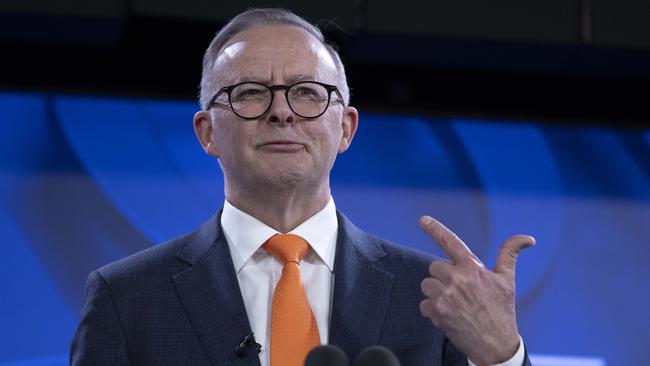
To the government, full employment means fewer people unemployed, secure jobs with sufficient hours, eliminating discrimination, increasing the number of women, mature workers, people with a disability and First Nations people in work.
The summit will inform the report, which aims to “plot a path” to reduce unemployment and underemployment, and keep both low.
Labor says challenges were present before the pandemic hit and education, training and childcare can contribute to improvements.
What is being discussed?
Day one will address issues including how to maintain full employment, pay for women, the future of enterprise bargaining, future skill needs, how to develop existing industries and opportunities in clean energy and tacking climate change.
Day two will focus on migration and how it should be used to cover skills gaps, workplace discrimination and boosting workforce participation.
Is it going to achieve anything?
The summit will recommend immediate actions and opportunities for medium and long-term reforms.
These will help address skills shortages, improve migration settings and ensure women have equal opportunities and pay.
It will inform an employment white paper, which will focus on keeping unemployment low, boosting productivity and incomes.
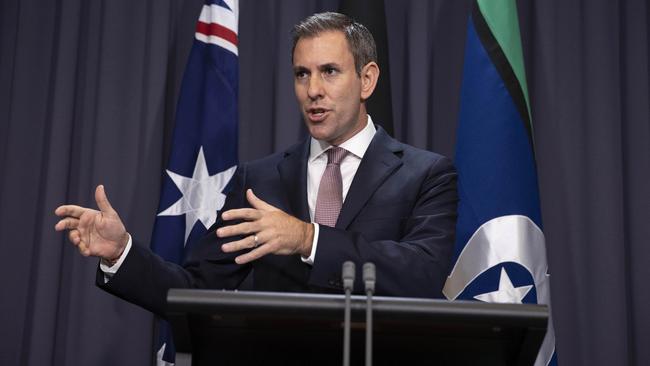
The paper will also look at sustainable wages growth, secure well-paid jobs, and expanding employment opportunities for all Australians – including the most disadvantaged.
Opportunities to maximise jobs in the renewable energy sector, digital and care economies, as well as building more things in Australia will be included.
People will make submissions and the public will be consulted over the next 12 months.
What are the sticking points?
• Visas, the migration cap number, and pathways to permanent residency.
• Allowing older Australians to work more without losing their pension to fill shortages.
• The enterprise bargaining system, which most agree is a broken and does not deliver wage growth.
• Multi-employer bargaining proposal
• The ‘better off overall test, also known as the BOOT test.
• Gender pay gap.
• Training and apprenticeships
I don’t know much about industrial relations, please explain
• Enterprise bargaining involves an employer, employees and their bargaining representatives negotiating on an enterprise agreement. The service-based industry and an increase in small businesses has led to a drop in these deals. Unions claim companies that want to pay their workers above the award are being undercut by contractors that win jobs because they are paying workers less. Some groups say the BOOT test has created red tape and made the negotiations more complicated
• Unions are pushing for a shift to multi-employer bargaining, which could involve a whole industry – not just a single employer – striking a deal. They say it will help increase wages. Small business is also supporting the calls but the Business Council of Australia and industry have expressed concerns. The Liberals claim it didn’t work in the 1970s and won’t now.
• The BOOT test ensures the terms in an enterprise agreement do not leave workers worse off under the agreement than the relevant award. Unions want the legal test simplified, while the Greens are concerned the test will be weakened. Employer groups also want reforms to the test, which the Liberals have revealed it may be open to supporting. Labor says it is open-minded about the BOOT becoming more flexible. This is despite rejecting reforms to the test in the Morrison government’s omnibus bill last term.
• The gender pay gap is the difference between the average earnings of men and women men in the workforce. Everyone agrees more needs to be done to close the gender pay gap. But proposals go beyond talks about wages and take in workplace culture, the need to increase women’s participation, and access to affordable early childhood education.
Who is on the guest list
1. Dylan Alcott – Australian of the Year
2. Mohammad Al-Khafaji – Federation of Ethnic Communities’ Councils of Australia
3. Daniel Andrews – Victorian Premier
4. Luke Anear – SafetyCulture
5. Julia Angrisano – Finance Sector Union
6 John Azarias – The Lysicrates Foundation
7. Cr Anne Baker – Isaac Regional Council
8. Brad Banducci – Woolworths
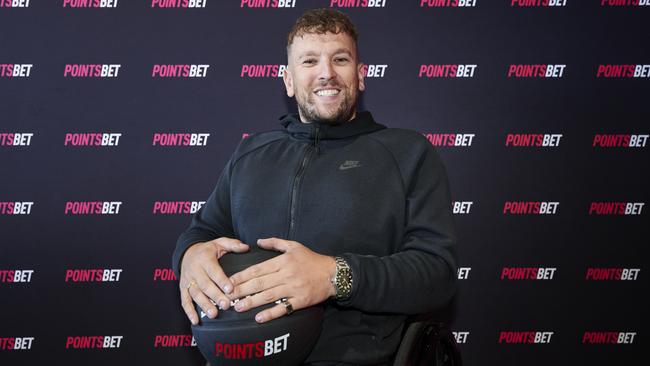
9. Dr Alison Barnes – National Tertiary Education Union
10. Andrew Barr MLA – Australian Capital Territory chief minister
11. Karen Batt – Community and Public Sector Union
12. Dale Beasley – SA Unions
13. Debby Blakey – HESTA Super Fund
14. Anna Bligh AC – Australian Banking Association
15. Professor Jeff Borland – University of Melbourne
16. Poul Bottern – National Australian Apprenticeship Association
17. Alexi Boyd – Council of Small Business Organisations Australia
18. Saviour Buhagiar – Uniting NSW/ACT
19. Annie Butler – Australian Nursing and Midwifery Federation
20. Simon Butt – Master Builders Australia
21. Christy Cain – Construction Forestry Maritime Mining and Energy Union
22. Steven Cain – Coles
24. Debra Cerasa – Jobs Australia
25. Professor Sara Charlesworth – RMIT University
26. Scott Charlton – Transurban
27. Melinda Cilento – Committee for Economic Development of Australia
28. Michael Clifford – Queensland Council of Unions
29. Scott Connolly – Australian Council of Trade Unions
30. Tania Constable – Minerals Council of Australia
31. Christine Cooper – Independent Education Union
32. Professor Allan Dale – Cooperative Research Centre for Developing Northern Australia
33. Helen Dalley-Fisher – Equality Rights Alliance
34. Jon Davies – Australian Constructors Association
35. Emma Dawson – Per Capita
36. Robyn Denholm – Tech Council of Australia
37. Georgie Dent – The Parenthood
38. Mark Diamond – Rail, Tram and Bus Union
39. Jenny Dodd – TAFE Directors Australia
40. Lin Hatfield Dodds – Benevolent Society
41. Melissa Donnelly – Community and Public Sector Union
42. Professor Alan Duncan – Bankwest Curtin Economics Centre
43. Adrian Dwyer – Infrastructure Partnerships Australia
44. Gerard Dwyer – Shop, Distributive and Allied Employees‘ Association
45. Ben Eade – Manufacturing Australia
46. Brent Eastwood – JBS Foods
47. Terese Edwards – National Council of Single Mothers & their Children
48. Sam Elsom – Sea Forest
49. Scott Farquhar – Atlassian
50. Stephen Ferguson – Australian Hotels Association
51. Dr Cathy Foley – Office of the Chief Scientist
52. Steve Fordham – Blackrock Industries
53. Dr Andrew Forrest – Fortescue Metals Group, The Minderoo Foundation
54. Professor Anthony Forsyth – RMIT University
55. Andrew Fraser – Griffith University
56. Natasha Fyles – Northern Territory chief minister
57. Pat Garcia – Catholic Health Australia
58. Professor Ross Garnaut – University of Melbourne and Zen Energy
59. Dr Ben Gauntlett – Australian Human Rights Commission
60. Professor Sue Gordon – Flinders University
61. John Grimes – Smart Energy Council
62. Correna Haythorpe – Australian Education Union
63. Mike Henry – BHP
64. Luke Hilakari – Victorian Trades Hall Council
65. Leanne Ho – Economic Justice Australia
66. Carolyn Hodge – People with Disability Australia
67. Christine Holgate – Toll Group Express
68. Dr Joanna Howe – University of Adelaide
69. Catriona Jackson – Universities Australia
70. Kate Jenkins – Australian Human Rights Commission
71. Fiona Jose – Cape York Institute/Cape York Partnerships
72. Matt Journeaux – Australasian Meat Industry Employees Union
73. Alan Joyce AC – Qantas Group
74. Michael Kaine – Transport Workers Union
75. Tal Karp – The Y Australia
76. Tim Kennedy – United Workers Union
77. Alison Kitchen – KPMG
78. Dr Sharlene Leroy-Dyer – Australian Council of Trade Unions
79. Megan Lilly – Australian Industry Group
80. Catherine Livingstone – expert
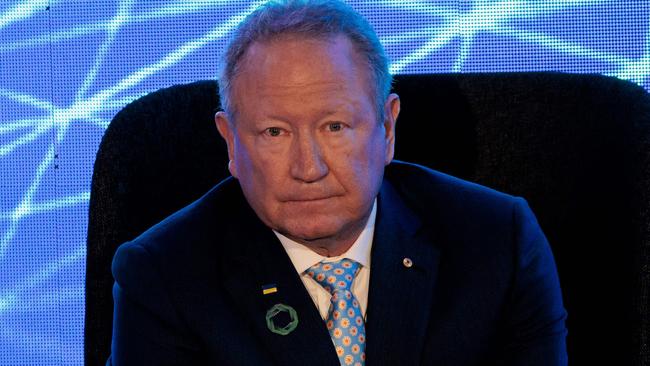
81. Jenny Macaffer – Adult Learning Australia
82. Edwina MacDonald – Australian Council of Social Service
83. Erin Madeley – Media, Entertainment and Arts Alliance
84. Peter Malinauskas – South Australian Premier
85. Professor Shelley Mallett – Brotherhood of St Laurence
86. Jill McCabe – Professionals Australia
87. Professor John McCallum – National Seniors Australia
88. Professor Shae McCrystal – University of Sydney
89. Samantha McCulloch – APPEA
90. Mark McGowan – Western Australian Premier
91. Andrew McKellar – Australian Chamber of Commerce and Industry
92. Sally McManus – Australian Council of Trade Unions
93. Sarah McNamara – Australian Energy Council
94. Wayne Miller – Ceduna Aboriginal Corporation
95. Carmel Monaghan – Ramsay Health Care
96. Mark Morey – Unions NSW
97. Sam Mostyn – Chief Executive Women
98. John Mullen – Telstra
99. Jessica Munday – Unions Tasmania
100. Steve Murphy – Australian Manufacturing Workers‘ Union
101. Christine Nixon – Royal Australian College of General Practitioners
102. Liam O’Brien – Australian Council of Trade Unions
103. Michele O’Neil – Australian Council of Trade Unions
104. Teri O’Toole – Flight Attendants Association of Australia
105. Kelly O’Shanassy – Australian Conservation Foundation
106. Margy Osmond – Tourism & Transport Forum
107. Samantha Page – Early Childhood Australia
108. Annastacia Palaszczuk – Queensland Premier
109. Kellie Parker – Rio Tinto
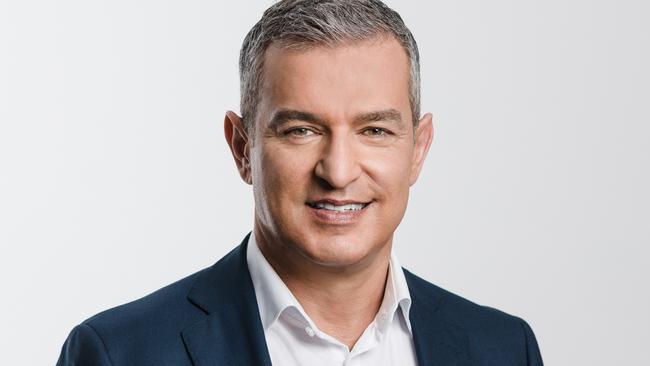
110. Dominic Perrottet – NSW Premier
111. Yasmin Poole – Youth advocate
112. Robert Potter – Australian Services Union
113. Anthony Pratt – Visy
114. Mina Radhakrishnan – Different
115. Tim Reed – Business Council of Australia
116. Jade Ritchie – Unions NT
117. Dr Abul Rizvi – expert
118. Jeremy Rockliff – Tasmanian Premier
119. Luke Rycken – Australian Youth Affairs Coalition
120. Paul Schroder – AustralianSuper
121. Cr Linda Scott – Australian Local Government Association
122. Rob Scott – Wesfarmers
123. Tom Seymour – PricewaterhouseCoopers
124. Alex Simpson – Westcoast Renewable Energy
125. Fiona Simson – National Farmers‘ Federation
126. Sally Sinclair – National Employment Services Association
127. Carolyn Smith – Unions WA
128. Professor John Spoehr – Flinders University, Factory of the Future
129. Jodie Taylor – Supply Nation
130. Kane Thornton – Clean Energy Council
131. Kasey Tomkins – Unions ACT
132. Pat Turner – Coalition of Peaks
133. Ainslie van Onselen – Chartered Accountants Australia and New Zealand
134. Daniel Walton – Australian Workers‘ Union
135. Kate West – Arup
136. Jennifer Westacott – Business Council of Australia
137. Lloyd Williams – Health Services Union
138. Troy Williams – Independent Tertiary Education Council Australia
139. Innes Willox – Australian Industry Group
140. Danielle Wood – The Grattan Institute
141. Michael Wright – Communications, Electrical and Plumbing Union
142. Micky Wunungmurra – Arnhem Land Progress Aboriginal Corporation
143. Paul Zahra – Australian Retailers Association
Originally published as Jobs and Skills Summit 2022: All the names revealed





